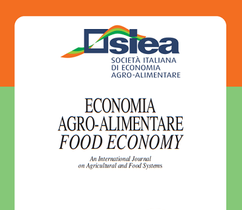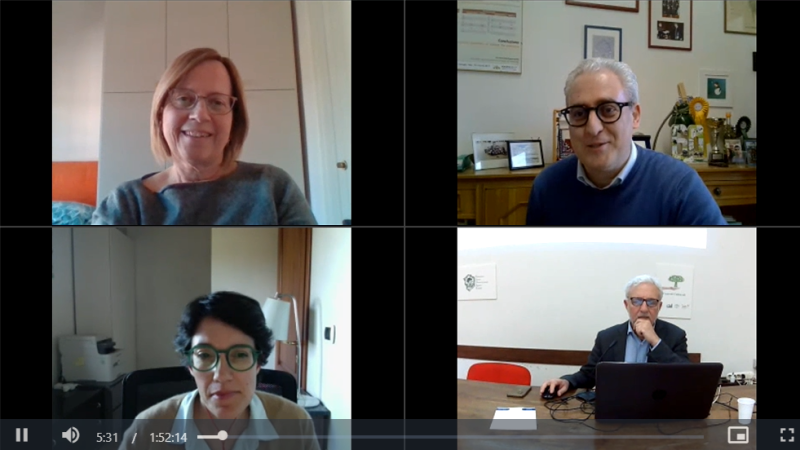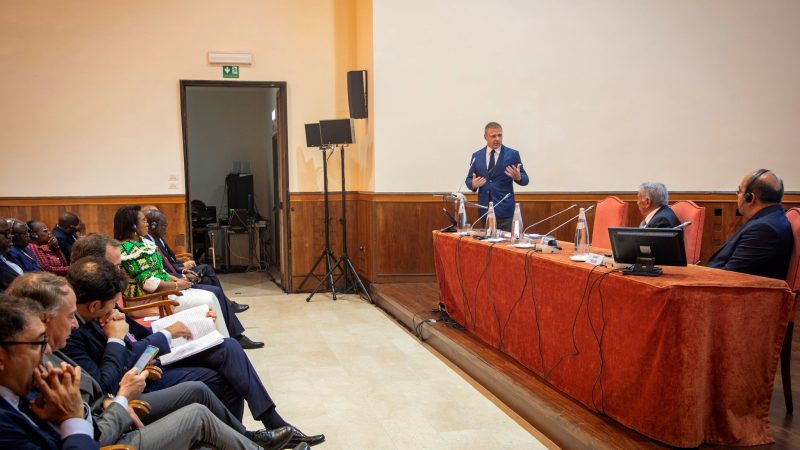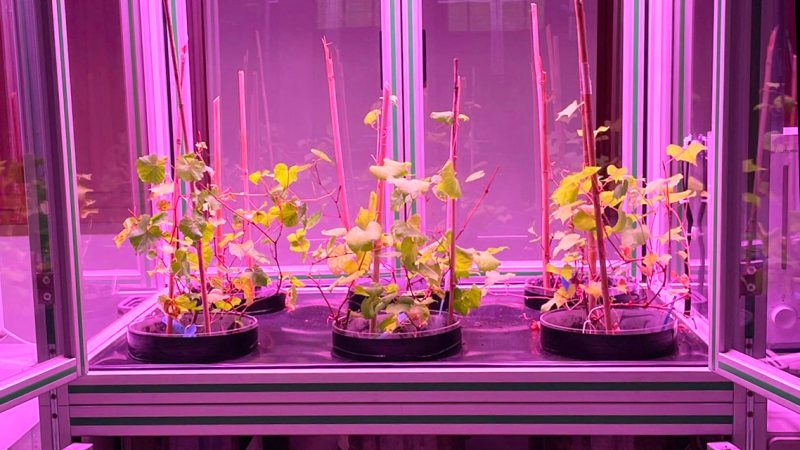La Carta di Maccarese è ancora attuale?
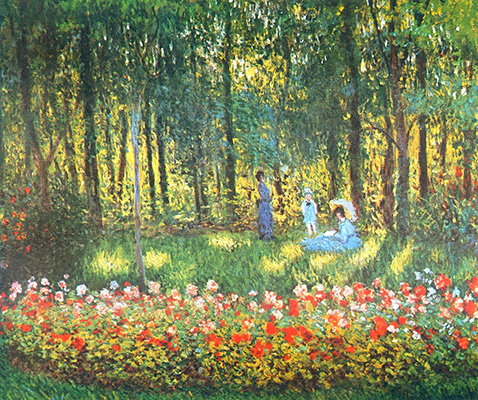

La Carta di Maccarese fu preparata dalla FIDAF nel 2001, prima del G8 di Genova. I tragici fatti di allora annullarono ogni buon proposito. A 15 anni di distanza aggiungo alcuni recenti commenti:
«Noi avevamo fatto un tentativo ragionevole per risolvere l’accensione del detonatore che più ci preoccupa: la fame»;
“Oggi gli stati ricchi e i ricchi in generale non possono pensare – al di là del giudizio etico – di potersi godere in pace la propria ricchezza. Prima o poi arriva il momento del redde rationem. Come sempre è meglio prevenire. Ma siamo ancora nel buio pesto…»;
«Sarebbe bello se potessimo aprire un dibattito in questo campo, un dibattito pubblico anche se virtuale. Potrebbe la FIDAF esserne promotore?».
«In qualche tratto la carta può apparire un pò ingenua, ma questo significa solamente che la situazione ora è ancora più incarognita di qualche anno fa e che quindi molte speranze di allora rischiano di essere solo utopie al giorno d’oggi»;
«Conserva la freschezza, la lungimiranza, la sua inossidabile attualità”
L’EXPO 2015, Feeding the planet – Energy for life sta a testimoniarlo.
Di seguito la versione in italiano e in inglese.
| COSTRUZIONE SOLIDALE DELLO SVILUPPO GLOBALE ED EQUO FRA I POPOLI |
|
La riflessione della FIDAF ed il suo appello Luglio 2001 – G8 di Genova La globalizzazione è un processo inarrestabile di trasferimento e diffusione di conoscenze, cultura, informazioni, innovazioni, tecnologie, prodotti, servizi e capitali su tutto il pianeta. Se ciò avviene alle condizioni di massima convenienza economica e di minima protezione doganale, vengono favorite le più competitive combinazioni dei fattori produttivi e i maggiori ritorni economici. Questo fenomeno, che sicuramente crea nuove opportunità scientifiche, tecnologiche ed economiche e la più estesa partecipazione della mente e dell’inventiva umana, per la produzione di ricchezza non può essere basato su di una filosofia economico-politica che di fatto finisca per favorire un sistema produttivo improntato al liberismo deregolato e addirittura selvaggio. Solo un “Governo Mondiale nella democrazia” potrebbe contemperare efficacemente i benefici dell’economia di mercato con i princìpi di salvaguardia sociale, di rispetto dei diritti umani e dei valori delle diversità culturali, della tutela delle risorse naturali e delle esigenze della sostenibilità ambientale. L’assenza di un tale “Governo” mette in luce un vuoto preoccupante che giustifica la nascita di:
Nelle società civili dei Paesi Sviluppati e non, si sta fortunatamente facendo strada il Principio della Responsabilità Planetaria Individuale. Per una prospettiva di sicurezza per le generazioni attuali e per quelle future, occorre una impetuosa mobilitazione delle capacità umane e tecnico-scientifiche di tutti i Paesi, necessariamente sostenute da adeguate risorse finanziarie, per innescare un circolo virtuoso capace di autoalimentarsi. Maccarese, 13 luglio 2001 CARTA DI MACCARESE FIDAF (Federazione Italiana Dottori in Agraria e Forestali), consapevole, anche per memoria storica, dei problemi inerenti le grandi emergenze dell’umanità, povertà, fame, malattie, diritti civili, degrado ambientale, depauperamento delle risorse naturali ed energetiche, ha voluto, nella imminenza della riunione del G8 di Genova, raccogliere a Maccarese (località nelle vicinanze di Roma, punto di incontro di ricerca, anche internazionale con particolare riguardo alla biodiversità, formazione e attività produttiva agricola) persone sensibili e competenti per dibattere ed elaborare una proposta in merito.
ADESIONI Rossi Luigi – Presidente della FIDAF, Scarascia Mugnozza Gian Tommaso – Presidente Consorzio Agrital Ricerche – Maccarese, Zoppi Sergio – Presidente Consiglio per la Ricerca e la Sperimentazione in Agricoltura Giordano Ervedo – Professore – Dipartimento Forestale – Università “La Tuscia” Giorgi Benito – Ricercatore ENEA Sonnino Andrea – FAO Ancora Giorgio – Ricercatore ENEA Bagnara Domenico – Agronomo-Ricercatore Basso Giovanni – Agronomo Bertoni Giuseppe – Professore Università Cattolica “S. Cuore” Bozzini Alessandro – FAO Braggio Paolo – Agronomo libero professionista Brunetti Nicola – Chimico – Ricercatore Carrano Stefano – Agrital Ricerche Colucci Federica – Agronomo – Ministero delle Politiche Agricole e Forestali Di Luozzo Vincenzo – Agronomo libero professionista Donini Basilio – Agronomo-Ricercatore Guerrieri Giovanni – Agronomo Iannetta Massimo – Ricercatore ENEA Lomonaco Fabio – Agronomo – Sviluppo Italia Lucatello Gian Filippo – Agronomo libero professionista Marconi Emanuele – Professore Università del Molise Mathis Agostino – Dirigente ENEA Menafra Francesco – Dirigente Ministero Attività Produttive Paolinelli Franco – Agronomo Picchi Antonio – Economista agrario Porceddu Enrico – Professore – Università “La Tuscia” Porfiri Oriana – Agronomo libero professionista Ravà Pietro – Agronomo tropicalista Santoro Nicola – Giornalista Schiavone Panni Maurizio – Agronomo – Sviluppo Italia Sorrenti Domenico – Ministero Affari Esteri Tarsitani Luciano – Agronomo Tomassetti Giuseppe – Dirigente ENEA Vita Gianni – Ricercatore ENEA Vedana Cecilia – FORMEZ Ceccarelli Annalisa – APRE Giuliano Giovanni – Ricercatore ENEA Benvenuto Eugenio – Ricercatore ENEA Dini Mario – Prof. Univ. Firenze Trifiletti Filippo – CONFAGRICOLTURA Laneri Ugo – Ricercatore ENEA Pizzichini Massimo – Ricercatore ENEA Porta-Puglia Angelo – Istituto Patologia Vegetale Olivieri Angelo – Univ. Udine Castelli Maurizio – Presidente Associazione Dottori in Agraria e Forestali di Mantova Lucioli Luana – ASL Roma Magini Mauro – Ricercatore ENEA Ajmone Marsan Paolo –Università cattolica Piacenza Triglia Antonio – FORMEZ Zaniboni Evaristo – Imprenditore agricolo Baroncini Claudio – IRCE Federighi Tiziano – Consorzio Train Kosturkova Georgina – Genetista, Bulgaria Innocenti Franca – Casalinga, Imola Boesso Annamaria – Casalinga, Roma Mantovani Giovanni – ENPAIA Filippi Pierluigi – Coldiretti Cella Agostino – Spazio Verde Bassani Luigi – ENPAIA Lucretti Sergio – ENEA Testa Gabriele – Presidente Associazione Provinciale di Bologna Giannantoni Ugo – Presidente del Consorzio della Bonificazione Umbra Commenti pervenuti: Min. Plen. Giandomenico, Sergio Dompé, Agostino Mathis, Paolo Braggio |
JOINT CONSTRUCTION OF PEOPLES’ GLOBAL AND FAIR DEVELOPMENT
FIDAF ideas and call
Globalization is a relentless process of transfer and spread of knowledge, culture, information, innovation, technologies, products, services and capitals all over the planet. If all this occurs at conditions of both highest economic convenience and minimum custom protection, favoured will be the most competitive combinations of productive factors, as well as the best economic returns.This phenomenon surely creates new scientific, technological and economic opportunities and the widest contribution of the human mind and imagination. However, the production of wealth cannot be based on a economic and political philosophy ultimately favouring a productive system based on a deregulated, if not wild, liberalism.
Only a “World Government in democracy” could effectively conciliate the market economy benefits with the principles of social safeguard, of respect of human rights and values of cultural diversity, as well as of protection of natural resources and of the requirements of environmental sustainability. The absence of such “Government “ points out a worrying gap which justifies the origin of:
- Anti-globalization movements, represented by the so called people of Seattle, pacific although showing inclination to some kind of violence;
- Organizations for solidarity and assistance (NGO), operative after a long time in all the multiform world of the Developing Countries, as well as in the so called countries “in transition”.
In the societies of the Developed and Non-developed Countries, a Principle of Individual World Responsibility is fortunately making its way. For a perspective of safety for both the present and future generations, a strong mobilization of human and technical-scientific skills in all Countries is needed, duly supported by adequate financial resources, in order to trigger a virtuous circle capable of self-feeding.
In fact, all too often the role of public scientific research is ignored, although always source of knowledge, training and know-how, linked to a more equitable development of populations in the economically less developed region. Indeed, there is now a tendency to disregard, in as much as farther from the popular feeling, science and technological innovation as factors of progress, although they are contributing , along with telecommunications, informatics, transports, etc., to making globalization irreversible.
The social and economic situation of the developing countries identifies now, as much as in the past, the alimentary and nutritional insufficiencies, the environmental decay, the impoverishment of natural and energetic resources as the most serious emergencies of our time. Agriculture, or, at large, the primary sector, is the cause, or one of the causes of this reality. But it is also, paradoxically, the solution of it, thanks to its potentialities based on science and the vast and widespread skills of its operators.
As compared to other great macro-economic factors, enterprises and services, agriculture is the human productive activity most prone to influences and physical and biological variations occurring in terrestrial environments. It also represents, however, that irreplaceable and fundamental industry which, through
the bio-factories, i.e., the green plants, accumulates, utilizes and transfers into a product the cleanest and cheapest energy in the world: the solar energy.
Today, a multi-functional role is also recognized to agriculture: from animal and plant production to the safeguard of human environment and the countryside, from the eco-compatibility to the sustainability of a production capable of meeting the needs of all consumers, in industrialized countries as well as in the developing ones, where 800 million people live under permanent risk of starving to death. In no country agriculture can be any longer conceived as a residual activity with the only role of producer of raw material, primarily for food and, on a smaller scale, for industry and pharmaceutics. In the Developing Countries, the take-off of the primary sector has taken place at least a century later than in the economically most advanced Countries. Starting from the Sixties, the so called “Green Revolution” has consented an average increase in productivity of the most important cereals (wheat, corn, rice and sorghum) of 2,5% per year, thanks to scientific research (particularly genetics), the use of agro-chemical inputs and the spread of irrigation.
Without the “Green Revolution”, a true milestone, an area 50 times as much as the entire Italian farming land should have been converted into arable land, of which 1500 million hectares only for cereals, dooming to destruction precious forestry resources and further reducing the already scarce water resources. A highly intensive agriculture with large use of technical inputs has not been, and is not, without negative consequences on environment (water, soil, biodiversity, desertification), on social equilibrium and on culture of rural populations in all agro-ecological areas of the planet.
All studies agree that, as an effect of the revival promoted by the “Green Revolution” and by the agro-biotechnologies, it can be expected that, in the next 30-40 years, levels of plant and animal production can be attained, sufficient to feed and guarantee food supplies for all peoples of the planet. The development of human resources and of scientific research is the basic requirement for increasing productivity and for a further strong technological progress. In a word, for an “Evergreen Revolution” capable to combine the needed productive increase with the conservation and sustainable use of natural resources. It shall also determine and strengthen a rural development leading to an improvement of social and economic conditions of farmers, which, in many countries, represent the majority of the population.
Between 2000 and 2025, the world population will increase of other 2 billion persons. Considering the need of equalizing the food level for all peoples, a doubling of the present food production will be needed. In order to face this task, besides a better distribution of the production, an increase of arable land and/or productivity will be necessary. The former presents serious limits and, at any rate, is not advisable from an environmental point of view . Besides, it could only contribute a 7 per cent of the needed increase. The remaining 93 per cent will have to be the result of an increase of productivity. What to do and how?
There is no simple answer. It is the man, with his cultural identity and his traditional knowledge, to have to be put at the center of the project of development.
A policy of International Cooperation for Development confined to debt remission, mega-projects having no connection with the social reality, and a strengthening and redefinition of aims of international organizations (FAO and others) cannot offer an adequate response to problems of poverty, food security and environmental safeguard. An involvement of citizens in both southern and northern regions of the planet, as well as of the local institution and the small and large Associations, can and must become the basic structures to build a network of exchange capable to govern the globalization, countering its deleterious effects and utilizing the immense opportunities for social and economic growth for all.
Maccarese, July 13 2001
THE MACCARESE MANIFESTO
The FIDAF (Italian Federation of Agriculture and Forestry Graduates), aware, also for historical memory, of the problems related to the great emergencies of humanity, poverty, hunger, diseases, civil rights, environmental decay, impoverishment of natural and energetic resources, at the eve of the G8 Meeting in Genoa wishes to convene to Maccarese (a site near Rome known as a meeting point also at international level, particularly relative to biodiversity, training and farming activity) sensitive and qualified people in order to debate and elaborate a proposal on the subject.
Persons gathered in Maccarese address an appeal to the rulers of the G8 countries, starting with Italy, and propose the “Maccarese Manifesto”, worded according to the following principles and guidelines:
- “globe of the villages” in order to safeguard the wealth of the territorial and cultural identities of peoples of this planet, rather than a single “global village” culturally uniformed;
- assertion of “rurality”, also intended as entrepreneurial capacity rooted in the territory, value and primary engine for the triggering of a socio-economic development;
- promotion of the rural development – also favouring the access to land and credit – primary instrument to counter the country depopulation, the decay of the territory and a massive urbanization, origin of slums.
- recognition of forestation as irreplaceable factor in the defense of the environment, the struggle against deforestation and the restraint of population exodus from the mountainous regions of the planet;
- safeguard of crop diversity in front of the pressure of a consumeristic and invasive mono-culture in large metropolitan cities;
- encouragement of responsible and conscious consumption, rather than a rush to consumerism obsessively induced;
- support to research, training and spread of knowledge related to improvement of local cultures, a rational use of soil and water resources, the safeguard and development of biodiversity in plants and animals;
- access to technical and scientific knowledge, in a frame of ethical and moral compatibility, in order to relieve the aforementioned emergencies;
- development of networks of “twinnings between communities/villages” of developing and advanced societies;
- mobilization of human and technical and scientific resources to project and realize sustainable “realities”, responsible and respectful of cultural, social, biologic and environmental diversities.
People meeting in Maccarese further appeal to the Chief of State, the Parliament and the Italian Government to the end of:
- Considering the cooperation for development an integral part of the foreign policy, able to supply a frame for an effective multiplication of meaningful interventions, such as the bi-multilateral and the intergovernmental consortia;
- Activating direct and indirect resources , both international and national, financially adequate and capable of promoting in the society a strong mobilization of human and technical and scientific resources.
Maccarese, July 13, 2001

